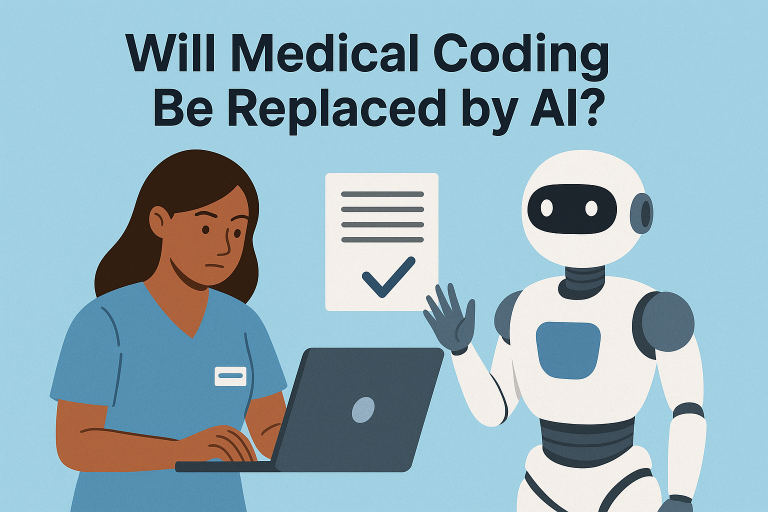Duke AI Health: How Artificial Intelligence Is Transforming Healthcare at Duke University

Imagine a future where computers help doctors spot diseases earlier, reduce errors, and create treatment plans focused to each patient. That future is being built today at Duke AI Health, a forward-thinking program at Duke University.
This initiative combines artificial intelligence (AI), medicine, and data science to make healthcare safer, faster, and more personal. But what exactly is Duke AI Health, and why does it matter to everyday people? Let’s explain this groundbreaking program.
What Is Duke AI Health?
Duke AI Health is a research and education program at Duke University that brings together experts from medicine, computer science, statistics, and engineering.
Their mission is simple but powerful:
“To make artificial intelligence work responsibly and effectively in healthcare.”
In practical terms, this means developing trustworthy AI systems that can help doctors make better decisions, improve hospital operations, and train the next generation of healthcare innovators.
The Main Goals of Duke AI Health
1. Research and Innovation
Duke AI Health’s foremost goal is to create artificial intelligence systems that have measurable, positive impacts on patient care.
This means going beyond theoretical modeling to develop clinically validated AI algorithms that enhance how hospitals predict, diagnose, and treat diseases. For instance, AI tools can analyze vast datasets to identify patients at high risk of conditions such as sepsis or heart failure, allowing doctors to intervene earlier.
Similarly, machine learning models trained on medical imaging can assist radiologists by detecting abnormalities that might be easily overlooked by the human eye. These innovations aim to strengthen—not replace; clinical expertise.
What sets Duke AI Health apart is its emphasis on translational research, ensuring that discoveries made in the lab actually reach clinical settings. Instead of creating tools that remain in research papers, Duke prioritizes systems that integrate seamlessly into hospital workflows, electronic health records, and diagnostic processes.
2. Collaboration Across Disciplines
A core belief of Duke AI Health is that the best healthcare AI emerges from collaboration among diverse experts. The program brings together clinicians, data scientists, engineers, and ethicists to tackle real-world medical challenges from multiple perspectives.
Doctors provide insight into clinical needs, while engineers and data scientists design algorithms capable of addressing those needs safely and efficiently. This collaborative environment ensures that AI solutions are not only technically advanced but also clinically relevant and implementable in real hospital environments.
Beyond internal collaboration, Duke AI Health forms partnerships with other universities, hospitals, and industry leaders to scale and refine its projects. This allows for broader testing, feedback, and adaptation to different healthcare settings.
Fostering a culture of shared knowledge and interdisciplinary problem-solving, Duke AI Health accelerates progress in the responsible use of AI. It demonstrates that healthcare transformation happens most effectively when science, technology, and medicine work hand-in-hand.
3. Training and Education
Duke AI Health recognizes that technology alone cannot revolutionize medicine; people who understand how to use AI responsibly are equally essential. Through programs like the Duke AI Health Fellowship, the initiative trains physicians, researchers, and technologists to bridge the gap between medical expertise and data science.
Participants learn not only how AI systems function but also how to interpret and apply them ethically in clinical practice. This hands-on education ensures that future healthcare leaders are prepared to integrate AI tools thoughtfully into patient care, balancing innovation with safety.
In addition to formal fellowships, Duke AI Health offers workshops, seminars, and coursework that build awareness and technical literacy among healthcare professionals. Teaching clinicians to understand AI outputs, evaluate data quality, and recognize model limitations, Duke promotes responsible adoption of AI across the medical community. This focus on education and capacity building ensures that artificial intelligence becomes a trusted partner in healthcare, not an opaque or misused technology.
4. Ethics and Safety
Ethics and patient safety are at the heart of Duke AI Health’s mission. The program is committed to ensuring that all AI tools used in medicine are transparent, fair, and respectful of privacy.
This means developing algorithms that clinicians and patients can understand, avoiding “black box” systems that make decisions without explanation. Researchers also work to identify and correct biases in datasets that could otherwise lead to unequal treatment across racial, gender, or socioeconomic lines. Such efforts are vital for maintaining fairness and public trust in AI-driven healthcare.
Duke AI Health also places strong emphasis on data security and regulatory compliance. All projects adhere to strict privacy standards, such as HIPAA regulations, to ensure that sensitive medical data remains protected.
Furthermore, the institution engages in national and international discussions about AI governance, helping shape policies for ethical AI use in medicine. Through these efforts, Duke AI Health ensures that innovation never comes at the expense of integrity, patient autonomy, or social responsibility.
Why Duke AI Health Matters
1. Better Patient Care
AI can analyze massive amounts of medical data and detect warning signs earlier than humans sometimes can. For instance, AI can flag patterns in lab results or medical images that suggest a higher risk of complications or disease.
For patients, this could mean earlier detection of illness, quicker treatment, and better recovery outcomes.
2. Less Paperwork for Doctors
Modern healthcare can overwhelm doctors with administrative work. Duke AI Health is exploring tools that automatically summarize patient conversations and draft clinical notes. This gives doctors more time to focus on their patients instead of their keyboards.
3. Personalized Treatment
By combining patient history, genetics, and lifestyle data, AI can help design treatments tailored to each individual rather than using a one-size-fits-all approach.
4. Reducing Errors
Even the best clinicians can make mistakes when overworked. AI can act as a safety net, double-checking medication doses, identifying potential risks, or alerting teams to changes in patient conditions.
The Challenges of Using AI in Healthcare
Duke AI Health also acknowledges that AI is not perfect. The program actively studies and addresses these challenges:
1. Data Bias
If the data used to train AI models don’t represent all types of patients, the system might make unfair or inaccurate predictions. Duke researchers are creating tools to identify and correct bias.
2. Transparency
Many AI models work like a “black box,” meaning even experts can’t fully explain how they make certain decisions. Duke focuses on building interpretable AI; systems that can explain their reasoning.
3. Safety and Oversight
Before an AI system can be trusted in a hospital, it needs thorough testing. Duke AI Health has a strong governance process to make sure every tool is safe before being used with patients.
4. Human Trust
Technology only works if people trust it. That’s why Duke trains healthcare teams to use AI effectively and ensures doctors always have the final say.
Key Programs at Duke AI Health
1. The AI Health Fellowship
This program trains scientists to work at the intersection of healthcare and artificial intelligence. Fellows learn to analyze medical data, design AI models, and apply their findings to real patient care. It’s hands-on, collaborative, and helps bridge the gap between theory and practice.
2. The Spark Initiative
Spark helps researchers develop AI models for medical imaging and diagnostics. For example, these projects might focus on using AI to read X-rays or MRIs more accurately and quickly, helping radiologists make faster diagnoses.
3. Evaluation and Governance Program
This program oversees the responsible use of AI in hospitals. It ensures that every algorithm used at Duke Health is reviewed for safety, fairness, and effectiveness. It’s one of the first of its kind in the country and serves as a model for other institutions.
4. Partnerships with Industry
Duke collaborates with technology companies to create AI tools for real clinical settings. These partnerships focus on cloud computing, data analytics, and natural language processing; all with strong privacy and ethical safeguards.
5. Community and Collaboration
Duke AI Health regularly hosts conferences, datathons, and workshops where students, clinicians, and data experts team up to tackle real healthcare challenges using AI.
Examples of AI in Action at Duke
Smarter Scheduling
Duke researchers used AI to predict how long surgeries would take. Their model was more accurate than traditional scheduling methods, saving time, reducing stress, and improving patient flow.
Supporting Mental Health
AI tools at Duke are being trained to identify patterns that could indicate an increased risk of mental health challenges in young people. This could help doctors provide support earlier.
Reducing Burnout
AI-powered note-taking tools are being tested in clinics to summarize patient visits automatically. Early results show that doctors spend less time typing and more time talking to patients.
Safer Clinical Decision Support
Duke has built systems that monitor AI models over time. If an algorithm starts performing differently than expected, it’s flagged for review, ensuring safety and accuracy.
How Duke AI Health Builds Trust
Trust is the cornerstone of healthcare. Duke AI Health emphasizes five major principles to make sure AI is trustworthy:
- Transparency: Every AI model used in healthcare must be explainable and auditable.
- Fairness: AI should work equally well for all people, regardless of age, race, or background.
- Privacy Protection: Patient data is handled with strict confidentiality and security protocols.
- Human Oversight: AI assists; it never replaces medical professionals.
- Continuous Monitoring: Algorithms are tracked over time to ensure consistent performance.
The People Behind the Program
Duke AI Health is led by experts who specialize in both medicine and data science. The team includes physicians, statisticians, and engineers who share a common goal: using technology to improve lives.
The leadership emphasizes teamwork and mentorship. Doctors and data scientists work side by side, ensuring that every new tool is medically sound, technically accurate, and ethically responsible.
The Future of Duke AI Health

Duke AI Health is rapidly expanding its impact, with AI tools being adopted across more hospital departments to improve accuracy, speed, and patient care.
Researchers are also developing digital twins (virtual models of patients) that allow doctors to test treatments safely before applying them in real life, paving the way for more personalized medicine.
Looking ahead, Duke is focused on smarter AI governance to automatically detect when algorithms lose accuracy, along with global collaboration to share safe and ethical practices worldwide. Ensuring equity and inclusion remains central to its mission, making sure AI benefits all patients, especially those from underrepresented communities.
Why Duke AI Health Is Different
What makes Duke AI Health unique is its focus on people as much as technology. While many organizations build AI tools, Duke makes sure those tools truly help doctors and patients. The team combines cutting-edge science with hands-on medical use, creating AI that improves care rather than complicates it.
Duke also leads with ethics, education, and community. Its experts work to ensure every innovation is fair, transparent, and respectful of patients. Through strong mentorship and community partnerships, Duke AI Health is training the next generation to use AI responsibly; so that progress in technology always means progress for people.






